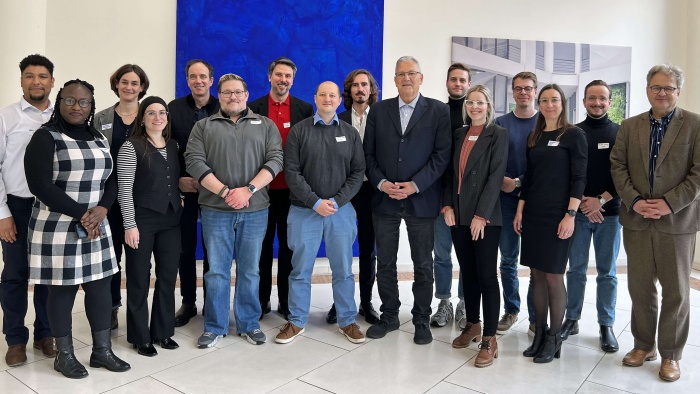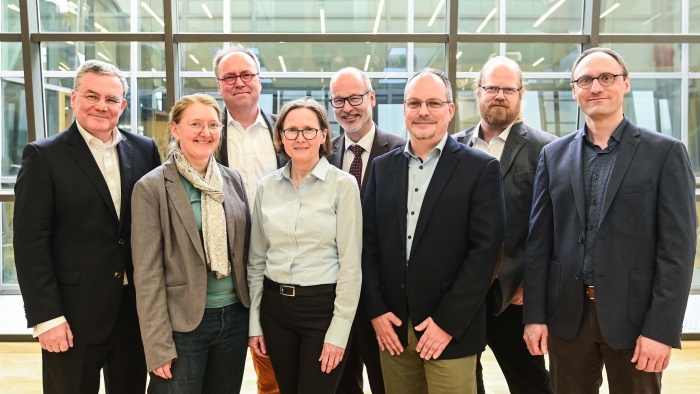Changing the way we understand healthcare and medicine
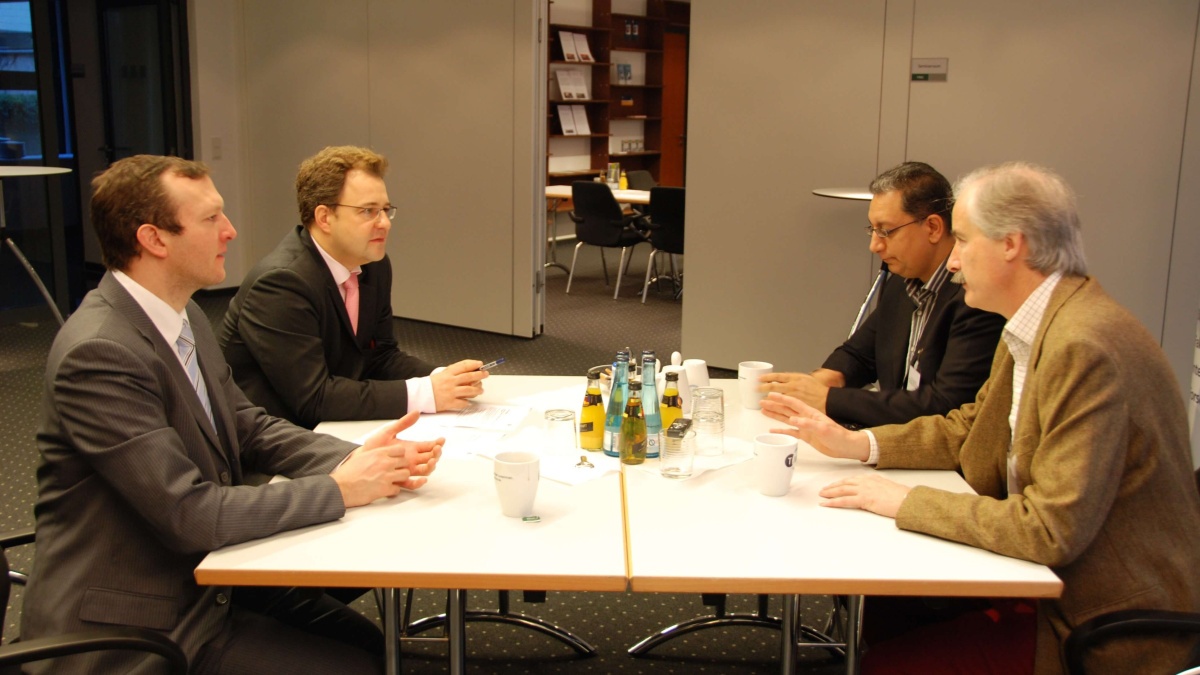
From left to right: Roland Krause, Sebastian C. Semler, Dipak Kalra, Peter Singleton. © TMF e.V.
“The present agenda focuses on the prospective study model. It assumes that we want to find a recruitment pool of patients and from that a group of hundreds, maximum thousands, we want to study and identify the effectiveness and safety of new medicines. But the ability to actually study millions alters the landscape.” Prof. Dipak Kalra
“I'm not saying that what we're creating is the medical equivalent of Google – but we hope it will have those unanticipated benefits.” Peter Singleton
Up to 2014, within the scope of the European project "Electronic Health Records for Clinical Research" (EHR4CR), partners from academic research and industry will be jointly establishing a Europe-wide technology platform that aims to allow secondary use of data from electronic health records for the purpose of clinical research. Dipak Kalra, Professor of Health Informatics at University College London, and Peter Singleton, Director at Cambridge Health Informatics, discuss the future of clinical research in Europe with Sebastian Claudius Semler, Executive Director and Roland Krause, Scientific Advisor at TMF –Technology, Methods, and Infrastructure for Networked Medical Research. All participants of the discussion are Board members or involved in work packages of the EHR4CR project.
Krause: If you were to explain, say to my son: What is the EHR4CR and what will it bring to anybody?
Kalra: At the moment the pharmaceutical industry and many clinical research organisations spend a lot of money and time to collect clinical data on patients, in order to do research and prove that forthcoming medicines are effective and safe. A lot of the clinical information they need in order to get started on such studies probably already exists within the clinical records of these patients. But, because most information from clinical records are not accessible to these research teams, they have to start from scratch on each trial. They have to estimate where patients are located, in which hospitals, in which countries, how many there are, and how to contact them.
EHR4CR is offering a mechanism of examining electronic records at large scale - whole hospitals, whole countries, whole of Europe - to help identify relevant patients fast and in a very ethical and confidentiality protective way so they can be invited into trials efficiently and thereby speed up the advance of new medicines.
Singleton: I think it is also important to emphasize that, while the project itself is an Innovative Medicines Initiative, and so involves the pharmaceutical industry, EHR4CR provides an opportunity for patients to gain better access to clinical trials. It also may provide better information for other forms of clinical research, and not only clinical trials. We should not think of this as a tool purely for the pharmaceutical industry.
Semler: What is the specific benefit of this EHR4CR setting, as it is within the pharmaceutical industry and academic partners?
Kalra: I do believe we have assembled a consortium that brings some of the best European teams together, who have got experience in different ingredients of the solution space. I think the nature of the IMI programme, and the commitment we have to a sustainable long-term platform, means that rather than the traditional course where a research project runs for a few years and then stops, we expect to have something that has a long-term sustainability.
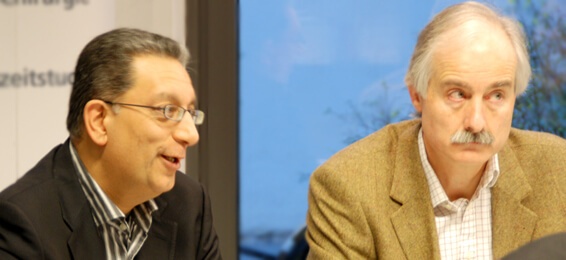
Kalra, Singleton: We have to make sure that the public at large understands the benefits that will accrue to it from EHR4CR. © TMF e.V.
Krause: What are aspects where you say “we should be careful”, where EHR4CR should not move into. Where are the risks?
Singleton: Well, clearly one of these critical areas is the broader social acceptance of whether this is an appropriate thing to do at all. There is obviously a strong legal and ethical question that we have to resolve. But we also have to make sure that the public at large understands the benefits that will accrue to it.
Kalra: I'd agree completely but I think there is a second challenge, which is the market positioning. As a very large publicly sponsored activity, EHR4CR is going to benefit from the ability to fast track its research and provide a solution that is ahead of the market. But we are not committing this result to a long-standing publicly-funded mission. We therefore expect that the longer-term strategy is a commercially sustainable solution. We need to position the EHR4CR platform and its tools and services very carefully, so that it supports and facilitates the market.
Semler: Maybe one important point could be, to give the use cases, specified here in the project, afterwards to IHE (Integrating the Healthcare Enterprise); to have an awareness of these standardised processes that make it much easier for software companies to invest in the products.
Kalra: Absolutely. I think there is a lot of education that is also needed. Most of the functionality of the platform will help healthcare to become better learning organisations. Most healthcare organisations have a lot more information at their disposal than they actually use to inform strategic decision-making. So, if we are wise in the way we position the platform and its functions, healthcare can gain from the use of the platform.
Singleton: I think it’s important to see what all the players have got to gain and lose. You've got to have the hospitals feeding in the right data, with the right data quality. If the person feeding it gets nothing out at the end, they won't bother feeding it. So we need to develop a solution that not only is economically viable, but also all the players get benefits from it in the right way. It takes time for people to adjust, for the data quality to improve, for data to become comprehensive. Often there is a lot of data missing, because it's not needed in the care setting. It takes time for people to realise the consequences of leaving out data or of putting in poor quality data.
Kalra: It is really important for the incentive structure to include the data capture people, clinicians of all professions. Because they're the ones who will do most of the work in improving data quality.
Semler: And I think they should share at some point the benefits. So it's important what you said, that we are not only dealing with benefits for pharmaceutical industry, but also for many other partners in this field.
Krause: What are the legal challenges for this project in the European environment?
Singleton: In many respects people might automatically say data protection is a problem. I view data protection as being very much about promoting good practice. Most of us would say, it is not a restriction on operations; it's what you should do in order to do things well. We must make sure we preserve data privacy to the patients. That helps engender trust. And public trust in the system is going to be vital.
Kalra: Another risk avoidance strategy is to try to keep a lot of the data processing local to each hospital. We will try and ensure that much of the examination of electronic records occurs locally within the healthcare organisation. Only modest amounts of data, mainly counts - how many people does the hospital have with certain criteria - would be leaving the hospital and coming into a large aggregation unit at the country or European level. We're very mindful of the importance of respecting cross-border data flows and not having large volumes of patients' specific data travelling across Europe.
Semler: I think the law in the EU countries is not as different as we often say. But we have different traditions to deal with these laws. We have different practices, different authorities and people we have to convince to harmonise the processes and not the laws. In my opinion one of the most important things is to have a good communication with these authorities.
Kalra: Luckily in this consortium we have a set of people who have a lot of experience, and not of just one country. As we heard in our discussions yesterday, for the pharma partners the safest course of action is to look across multiple countries, take the most stringent views and make that their universal norm. I'm sure that as a project we should take the same view. Thankfully there are organisations like TMF, which can help advise on that process. I was very impressed to learn that TMF has for several years adopted a proactive stance in taking the data protection rules that exist, realising that they are a blunt instrument for trying to undertake research, and then TMF worked out what is good practice and enabled that to be regarded as acceptable Germany-wide. This is a fantastic achievement and that’s what we now have to do on the European level.
There is another side to it - members of patient groups all over Europe - people with long-term conditions - are anxious to be in trials. They hope to take advantage of forthcoming medicines for themselves as individuals. We know that patients effectively feel under-recruited into trials. There is actually a strong societal wish for a platform like EHR4CR to work so that people can be more easily recruited into trials.
Krause: We've mentioned the pharmaceutical industry, we've mentioned the patients. And the clinical researcher? What's his benefit in the game?
Singleton: Well, broadly speaking: it will be much easier for him to understand whether a possible study could take place, how easily it could be rolled out. Having this information will help people refine their hypothesis, refine the practicalities of the project, get it going far sooner. It also may mean that projects that are not viable can be eliminated earlier and people can concentrate on the studies that are viable.
Kalra: The other thing we hope is that by having better refined protocols, because the study designer has better quality data, will mean fewer protocol amendments. Protocol amendments are a burden on the clinical investigator. We hope that we can make their life easier.
Semler: One last question: If one day we have an EHR4CR platform where all legal and data protection issues have been tackled and people can do their feasibility studies and their recruitment processes with it - how will this change the field of clinical research in the long-term perspective?
Singleton: I suppose once you have this platform it is very powerful also for epidemiological research. That will move us into a much wider range of data discovery, new issues and questions. So I think it's enabling a broader sense of knowledge. We only have to look at what’s happening in the Internet. The original aim of an online-search tool was just to help you find a website. Google is now such a different beast. I'm not saying that what we are creating is the medical equivalent of Google. But we hope it will have those unanticipated benefits.
Kalra: The present agenda focuses on the prospective study model. It assumes that we want to find a recruitment pool of patients and from that a group of hundreds, maximum thousands, we want to study and identify the effectiveness an safety of new medicines. With EHR4CR we will have - I hope - data on millions of patients that can be aggregated and pooled and then analysed. This alters the landscape. I believe that the pharma industry and many other research communities will have a lot of learning to do in how to best exploit data on many hundreds of millions of people. And the question is: What do we do with that analytic power? What can we learn and how can we change the way we understand healthcare and medicines and their impact?
Krause: Well thank you very much!
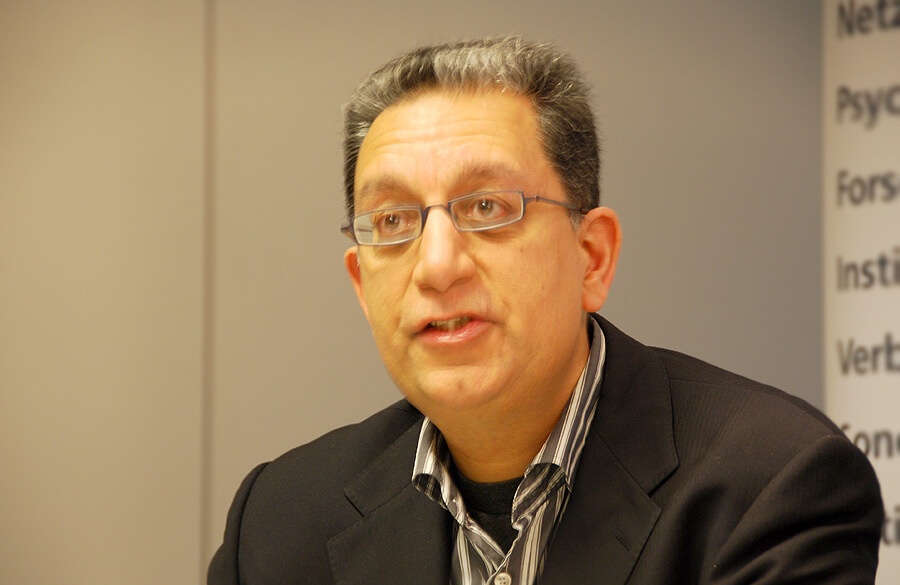
Prof. Dipak Kalra: EHR4CR is offering a mechanism of examining electronic records at large scale to help identify relevant patients fast. © TMF e.V.
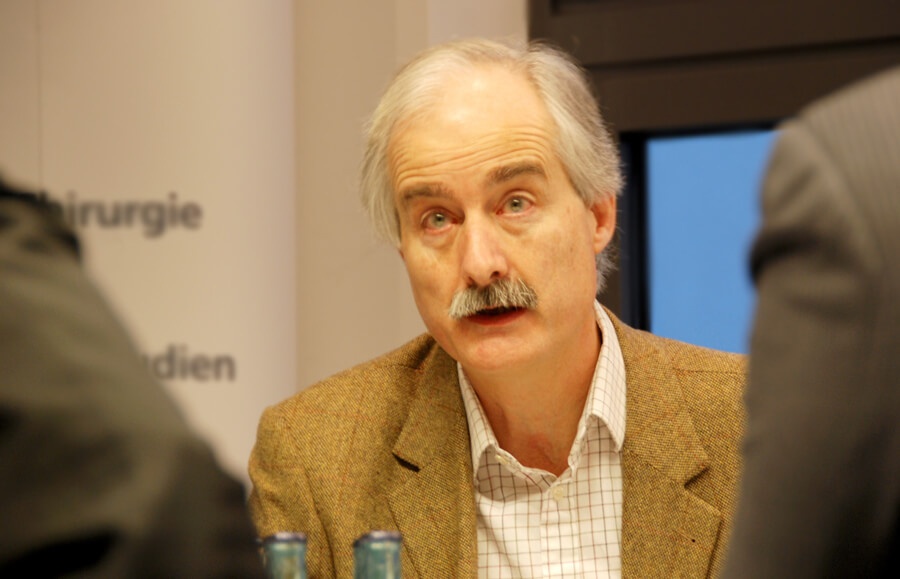
Peter Singleton: I'm not saying that what we are creating is the medical equivalent of Google. But we hope it will have those unanticipated benefits. © TMF e.V.
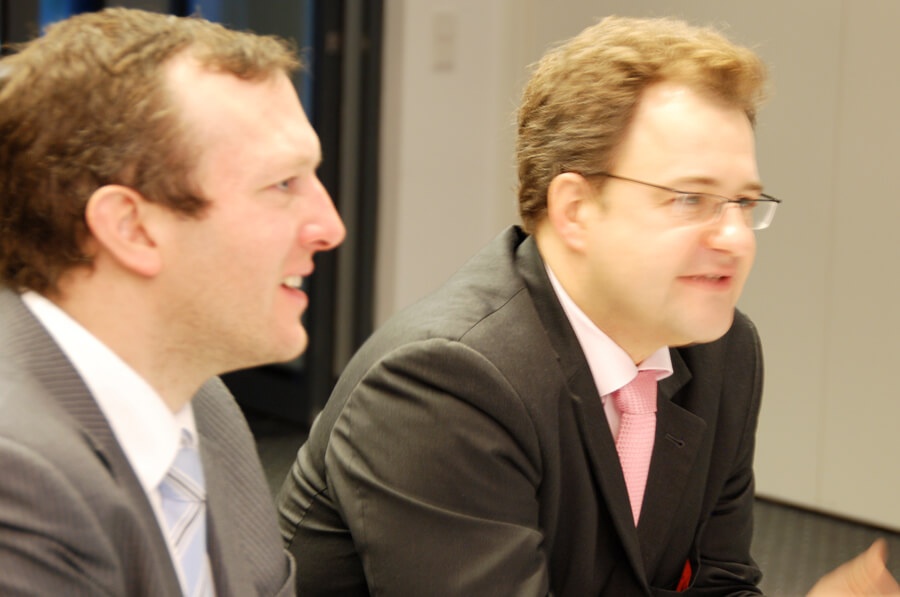
Krause, Semler: We have to harmonise the practices and processes in the EU member states and not the law. © TMF e.V.
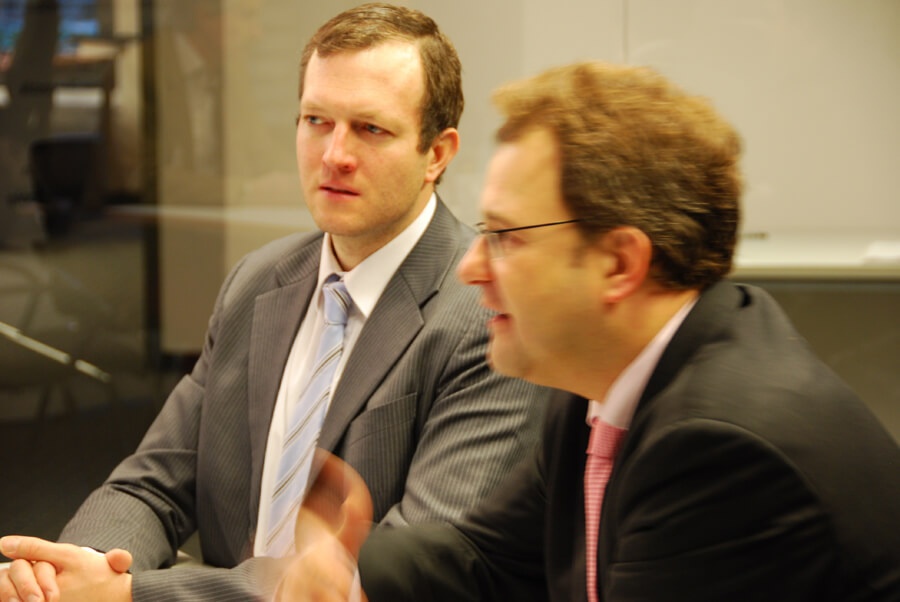
Krause, Semler: More and better quality information in the run-up of a study will make he clinical researcher's life easier. © TMF e.V.
Prof. Dipak Kalra,
University College London, is member of the EHR4CR Executive and Steering Committees as well as the Project Management Office.
Peter Singleton,
University of Cambridge Health Informatics, is member of the EHR4CR Advisory and Ethics Boards
Further information
